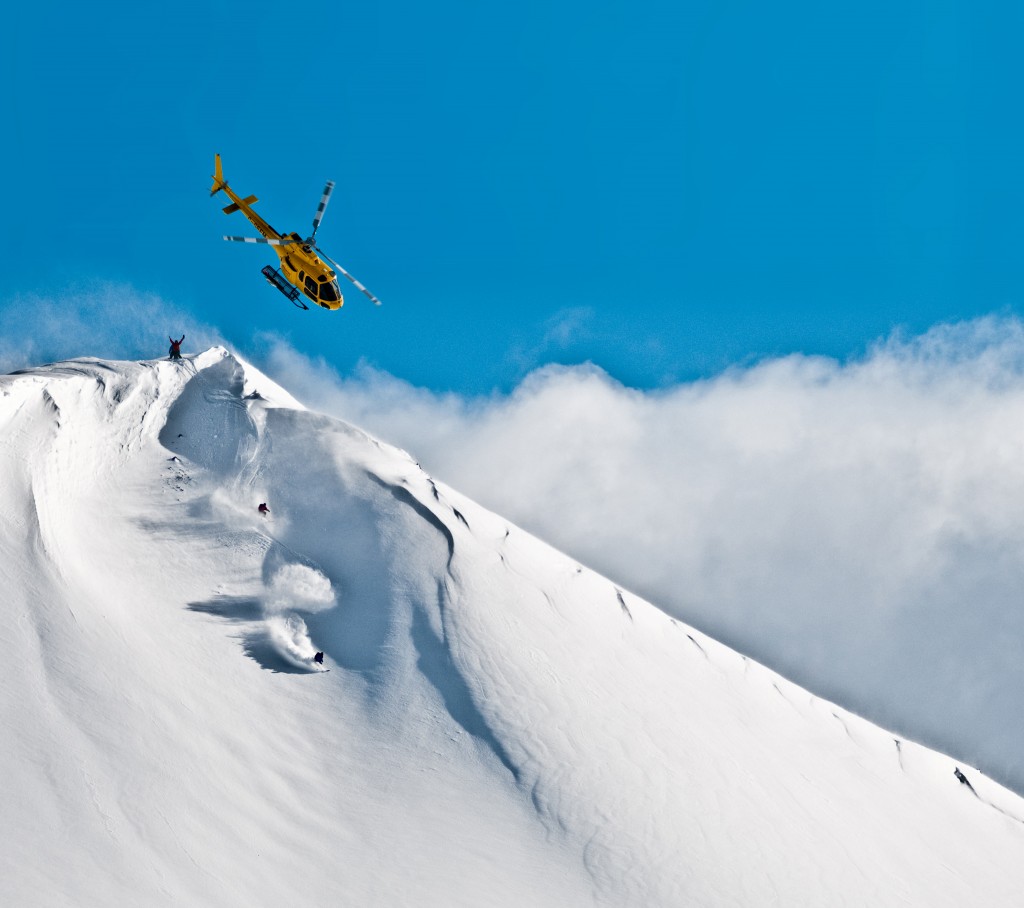Heli Skiing Retreat – Nutrition Management
Altitude is one of the most demanding and challenging places to exercise in. With Last Frontier you may be dropped of at heights of up to 2,600 meters, and at this elevation performance can quickly decline. The greater the altitude the greater the stress on the body, but even at relatively moderate heights such as 2,000 meters the effect can be noticeable. Below is some information about nutrition and rest that will benefit you during your stay at our heli skiing retreat.
Food intake is very important when exposed to higher altitudes. Carbohydrates are used up more quickly as a fuel source for energy whilst skiing, and also whilst resting (an increased resting metabolic rate). Inadequate food intake is related to this slowing down of the metabolism, and hunger can even be suppressed at altitude.

Carbohydrates
Carbohydrates are stored as muscle glycogen, a fuel source that needs constant replacement during, and especially after, a hard days heliskiing. A gradual depletion of glycogen stores within the body may occur without consuming sufficient quantities of carbohydrates, leading to prolonged fatigue, muscle heaviness, and a lack of energy. This is even more important if embarking on one of our longer heli skiing excursions, and for this reason our chefs make sure to keep you well fed during your stay.
Foods that we serve that are rich in carbohydrates come in many forms, including potatoes, grains (such as bread, pasta, rice and noodles), bananas, cereals and yogurts. High-density carbohydrate snacks that are great for taking up the mountain include dried fruit, sport and cereal bars.
Recovery and replacement of essential carbohydrates starts from the moment you finish skiing. One gram of carbohydrate per kilogram of body weight (i.e. 70g in a 70kg person) is needed to kick-start optimal fuel recovery. Sports drinks are great in assisting this process, and when combined with some of the snacks listed above will rapidly aid recovery. They also contain important vitamins and minerals that will benefit you later in your stay.
Dehydration
The other common issue at altitude is dehydration. This can affect mental as well as physical performance whilst heli skiing. As well as fluid loss through sweating, which is normal in any type of active exercise, the air at altitude is cold and dry, causing loss of moisture through breathing. Compensate for this by increasing your liquid intake, not only during skiing but at après too.
Again sports drinks are ideal, and practical, here. Sodium, potassium and magnesium, important electrolytes that encourage drinking, maintain hydration levels and minimize urine loss are often included in these types of drinks.
Try to concentrate on consuming fluids throughout the day, especially in the morning and afternoons. Moderate intake is recommended in the evenings, but be wary of consuming too much before sleep – many trips to the bathroom may follow!
Alcohol is also another consideration to bear in mind. We all love a good après ski session, (and hate to lecture), but dehydration will onset quicker at altitude, and alcohol may remain in the system through to the following day, reducing reaction time, affecting concentration and also producing bad headaches from time to time!
Heli Skiing, Heliskiing, Heli Ski, Heliski, Heli Skiing Costs, Heli Skiing Holiday, Heli Skiing BC, Heli Skiing History, Heli Skiing Lodges, Best Heliskiing


